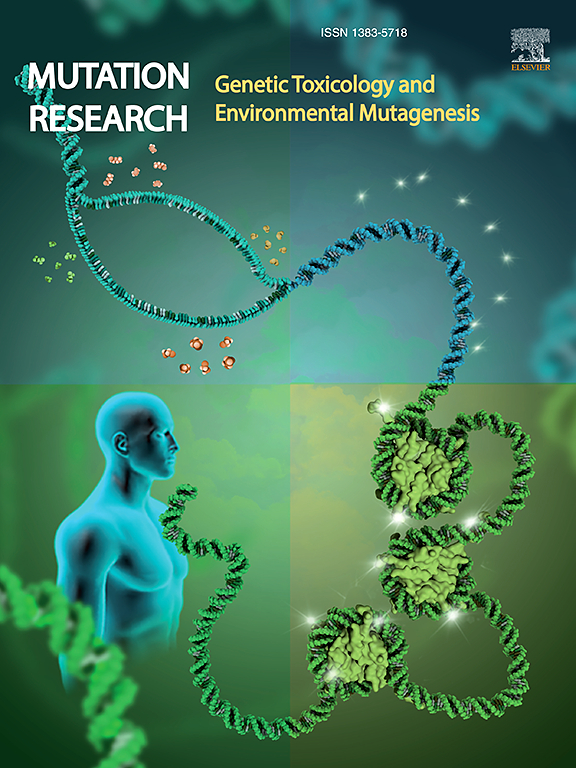Trends in the cytogenetic and immunologic status of healthy persons; Kazakhstan, 2007–2022
IF 2.5
4区 医学
Q3 BIOTECHNOLOGY & APPLIED MICROBIOLOGY
Mutation research. Genetic toxicology and environmental mutagenesis
Pub Date : 2024-08-21
DOI:10.1016/j.mrgentox.2024.503822
引用次数: 0
Abstract
Environmental pollution can affect immune health and genome stability. We have studied the immunological and cytogenetic status of healthy urban (Almaty City, which has high levels of air pollution) and rural residents of southern Kazakhstan, over the past 15 years. Differences between the groups in plasma immunoglobulin levels and chromosomal aberration frequencies were noted. Over the 15-year study period, decreases of immunoglobulin levels and increases of chromosomal aberration frequencies were observed and correlated with place of residence and ecological status of the region of residence; both ecological deterioration and the coronavirus pandemic are likely to have had negative effects.
哈萨克斯坦健康人的细胞遗传学和免疫学状况趋势,2007-2022 年
环境污染会影响免疫健康和基因组稳定性。在过去 15 年中,我们对哈萨克斯坦南部健康的城市(阿拉木图市,空气污染严重)和农村居民的免疫学和细胞遗传学状况进行了研究。研究发现,不同群体的血浆免疫球蛋白水平和染色体畸变频率存在差异。在 15 年的研究期间,观察到免疫球蛋白水平下降和染色体畸变频率增加,这与居住地和居住地区的生态状况有关;生态恶化和冠状病毒大流行可能都产生了负面影响。
本文章由计算机程序翻译,如有差异,请以英文原文为准。
求助全文
约1分钟内获得全文
求助全文
来源期刊
CiteScore
3.80
自引率
5.30%
发文量
84
审稿时长
105 days
期刊介绍:
Mutation Research - Genetic Toxicology and Environmental Mutagenesis (MRGTEM) publishes papers advancing knowledge in the field of genetic toxicology. Papers are welcomed in the following areas:
New developments in genotoxicity testing of chemical agents (e.g. improvements in methodology of assay systems and interpretation of results).
Alternatives to and refinement of the use of animals in genotoxicity testing.
Nano-genotoxicology, the study of genotoxicity hazards and risks related to novel man-made nanomaterials.
Studies of epigenetic changes in relation to genotoxic effects.
The use of structure-activity relationships in predicting genotoxic effects.
The isolation and chemical characterization of novel environmental mutagens.
The measurement of genotoxic effects in human populations, when accompanied by quantitative measurements of environmental or occupational exposures.
The application of novel technologies for assessing the hazard and risks associated with genotoxic substances (e.g. OMICS or other high-throughput approaches to genotoxicity testing).
MRGTEM is now accepting submissions for a new section of the journal: Current Topics in Genotoxicity Testing, that will be dedicated to the discussion of current issues relating to design, interpretation and strategic use of genotoxicity tests. This section is envisaged to include discussions relating to the development of new international testing guidelines, but also to wider topics in the field. The evaluation of contrasting or opposing viewpoints is welcomed as long as the presentation is in accordance with the journal''s aims, scope, and policies.

 求助内容:
求助内容: 应助结果提醒方式:
应助结果提醒方式:


